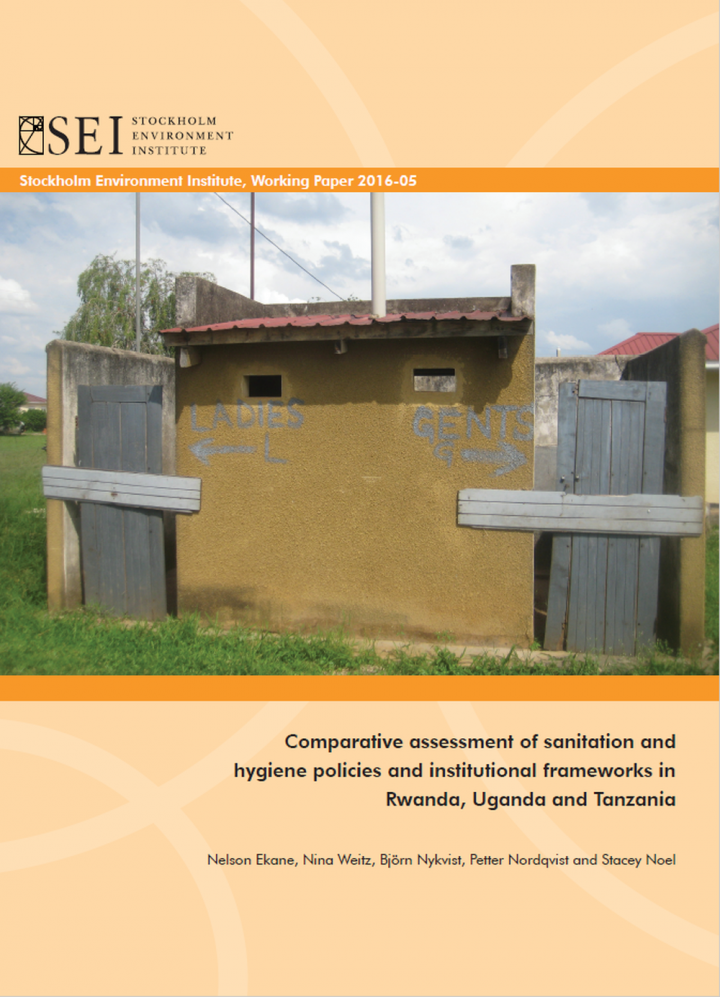Comparative assessment of sanitation and hygiene policies and institutional frameworks in Rwanda, Uganda and Tanzania Ekane, N., Weitz, N., Nykvist, B., Nordqvist, P., Noel, S. (2016)
This assessment finds that the policies in Rwanda, Uganda, and Tanzania meet many of the recommended criteria, but are still lacking key aspects to adequately cater for sustainability of services and functionality of facilities. Further, policies should reflect the needs and preferences of people. This is usually not the case because policies are very ambitious and hard to fully translate to action. Despite the existence of policies, the implementation process is flawed in many ways, and two key gaps are the lack or inadequate financing for sanitation, and serious lack of technical capacity, especially at the district level. Furthermore, the assessment shows that the policy and institutional framework for sanitation and hygiene differs from country to country. Rwanda and Uganda have separate sanitation and hygiene policies while Tanzania is still in the process of developing a separate sanitation policy. The paper also shows that even though there are still serious shortfalls shortfalls that hindered the achievement of the sanitation MDG in Uganda and Tanzania in particular, major reforms in the sector have undoubtedly contributed to improved sector performance in all the three countries. Regionally, access to improved sanitation in SSA is on a gradual increase while the practice of open defecation is decreasing. On a country level, however, there are significant variations in performance between countries, with countries like Rwanda making remarkable progress in sanitation and hygiene coverage.
The paper highlights the fact that the roles and responsibilities for promotion and provision of sanitation and hygiene services in Rwanda, Uganda and Tanzania are generally widely spread among different government agencies, non-governmental organizations (NGOs) and private operators from related sectors with different strategies of intervention. In most cases, the roles and responsibilities for sanitation and hygiene are not clearly defined thus creating overlapping interventions and confusion among actors or the multitude of key stakeholders.
Bibliographic information
Ekane, N., Weitz, N., Nykvist, B., Nordqvist, P., Noel, S. (2016). Comparative assessment of sanitation and hygiene policies and institutional frameworks in Rwanda, Uganda and Tanzania Stockholm Environment Institute (SEI), Royal Institute of Technology (KTH), Sweden
Filter / Tags
English
Downloads
Comparative assessment of sanitation and hygiene policies and institutional frameworks in Rwanda, Uganda and Tanzania
Type: application/pdf
Size: 2.56 MB

